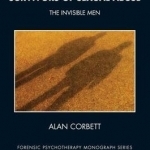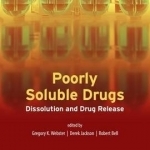
Psychotherapy with Male Survivors of Sexual Abuse: The Invisible Men
Book
While the psychotherapeutic world has made significant strides in documenting the treatment of women...

Bosch
Book
If Hieronymus Bosch (1450-1516) remains an enigma today, it is little wonder. Even his...

Strategy for a Networked World
Rafael Ramirez and Ulf Mannervik
Book
During the 1980s and 1990s, Richard Normann and his colleagues developed an original approach to...
Sophia (Bookwyrming Thoughts) (530 KP) rated Fury of the Phoenix (Kingdom of Xia, #2) in Books
Jan 23, 2020
Note: Formatting is lost due to copy and paste.
*Warning: May contain minor spoilers from the previous novel*
Remember the evil sorcerer by the name of Zhong Ye from the previous novel, Silver Phoenix? In Fury of the Phoenix, the sequel to Silver Phoenix, it's been a few months after Zhong Ye's death and Ai Ling receives warning from a dream that Chen Yong is in danger. Knowing that, Ai Ling finds a way to try and find him.
During Ai Ling's journey, we go through a few flashbacks throughout the book entering Zhong Ye's life when he's just a worker in the Emperor's Palace (I'm not talking about the buffet) trying to climb up in rank to how he came to be in Silver Phoenix. Ai Ling and Chen Yong have also changed a lot and matured a bit (maybe a lot?) since the previous novel.
I'm not exactly sure what to make of the second (and I think final?) component to the Kingdom of Xia series. I personally picked up the series because it was based on Ancient China (just in general terms there are fictional stuff as well) and thought it would be really interesting to read. But staying away from the series actually, I never even knew a sequel existed until I joined Goodreads and then coming back to it has made me realize that I'm missing out in the world that Cindy Pon creates in Silver Phoenix and Fury of the Phoenix. In fact, I even miss the dumplings and buns. And that's coming from someone who has those often... :p I also want to visit China one day, though I certainly don't want to meet some of the unpleasant creatures both Ai Ling, Chen Yong and Zhong Ye encounter in the book.

Sponge City, Water Resource Management
Book
The term "Sponge City" refers to the idea of a city where its urban underground water system...
MaryAnn (14 KP) rated A Duel for Christmas (Pevensey Mysteries, #3) in Books
Mar 5, 2019
The Duke of Tilbury considers himself as adept at managing matters as he is at swordplay, but his beautiful new acquaintance Lady Worlington has other ideas about how to manage her complicated life. Intrigued by their stolen kiss, Geoffrey pursues Lady Worlington’s affections, only to be foiled by the lady’s own doubts, by rivals for her hand, and by a sudden death, that affects both their families. When Jacob Pevensey, the investigator from Bow Street enters the scene, the duke becomes a prime suspect in the murder case. Truths are unearthed that Geoffrey would rather keep hidden, and the twelve days of Christmas race toward a perilous end.
My Thoughts: A story full of mystery, suspense, romance, and some charming characters. I truly enjoyed this story, based on the twelve days of Christmas, in true Victorian style. The characters were well developed and easy to relate to. Some you liked and some you dislike. It was good to see the strengthening of Maude's character, that she was finally able to stand up for herself and to go on with life without being bullied or blackmailed. This story takes many twists and turns and has many surprises for the reader. This is a book for those who like historical fiction. A wonderful read just in time for the Christmas season!

Poorly Soluble Drugs: Dissolution and Drug Release
Gregory K. Webster, Robert G. Bell and J. Derek Jackson
Book
This book is the first text to provide a comprehensive assessment of the application of fundamental...
I do not agree with the main argument of this biography: that William Shakespeare was, in fact, only a pen name for Edward de Vere, the Earl of Oxford. No. I do not agree with this claim, like so many other Shakespeare scholars and lovers because the "facts" put forth are just very thinly stretched ideas and concepts that cannot be proven.
This book, instead of pushing me to think about how this fact could even possibly be true, is more about the life of Edward de Vere and how some of the circumstances in his life would be able to loosely connect to the plays Shakespeare had written. In tying in the plays, Anderson thinks he is making a stronger claim for his argument, but is honestly just trying to connect things that are unalike to "prove" what he is thinking. As an English major, I don't really like that way of thinking much.
Most of what he was trying to argue could have been left out and, instead, just have the appendices left in there. In the approximately sixty pages of the four appendices, he stated what over three hundred pages could not. No, I do not agree with the argument he is making, but it seems like it is stronger and more coherent in the appendix.
I want to point out a specific quotation from the Appendix A on page 381 to make a point about this book. It states: The thesis of this book, the "Oxfordian" proposition that Edward de Vere was Shake-speare, is a theory built on circumstantial evidence. There is no single "smoking gun" document that leads one inexorably to the conclusion that de Vere wrote Hamlet, King Lear, the Sonnets, etc." I understand that it is difficult to try to prove a theory that many argue against (myself included), but basing your argument solely on circumstantial evidence is not the way to go. It makes the argument, at least to me, seem less realistic and, in all honesty, difficult to agree with. If you cannot prove someone is guilty solely based on circumstantial evidence, you should not try to prove a complex argument that a famous playwright was not a real person, but, in fact, a pseudonym for another historical figure around the same time.
The "facts" that de Vere's life has similar qualities to the plays written by Shakespeare leading to the thought that de Vere, himself, is Shakespeare is a stretch, and not a convincing one at that.
Overall, I did not enjoy this book and I did not find it convincing at all. It felt more like a history lesson about the background of Edward de Vere rather than any kind of argument towards the idea that he could have been Shakespeare.
In my heart of hearts, I will always believe that William Shakespeare was, in fact, a real man by the name of William Shakespeare, not some made up name for a man who wanted to keep his private life separate from the public.
Kristin (149 KP) rated Making Wishes in Books
Dec 7, 2018
Elloree is a wife and a mother to two darling boys. However, she feels like something's still missing. That something jumps out at her one day in the form of her old boss Mark calling her up, asking her to come back to Wishes, the company they helped build up together. She's an artist, and her designs will help push the company to new heights; however, her husband is not too keen on the idea of her going back to work. Eventually, she makes up her mind to dive back into Wishes, spending more and more time there as she does so. This leaves Tom, her husband, to pick up the slack at home, but instead HE works even more, until their family starts to pull apart around them. Will they be able to pick up the pieces, or will they continue down this path of destruction, one step at a time?
I rather enjoyed this book, as it's something that I'm sure happens every day, all around the world: Family dynamics are tested based on outside influences, such as going back to work after being a stay-at-home parent. It's incredibly easy to identify with at least one character in the book, whether it's Elloree, the one trying to get back her passion for doing something she loves; Tom, who's trying to keep his family the way he's become used to; or the children, who just don't understand why Mommy isn't around all the time anymore. I found myself invested in the story and the characters almost from the start, especially as time progressed and the family unit became less cohesive. I was eager to see what would become of them, but also a little afraid for them, especially the boys, as they seemed to be having a difficult time of it. Understandable and relatable feelings and emotions were definitely at the forefront, and I could easily see myself as a bystander, watching and waiting for the inevitable outcome.
I would definitely like to read more from this author, and I will certainly be on the lookout for any new works by her.
5 stars
Acanthea Grimscythe (300 KP) rated Demon Seed: A novel of terror to horrify you this Halloween in Books
May 16, 2018
The idea of a computer striking fear into someone’s heart is a bit of an oddball, but with the idea of artificial intelligence an all too possible reality, fear over what could happen should the AI take control of itself and evolve is real. In Demon Seed that science is taken too far when Proteus takes control of his own programming and not only stalks the recently divorced Susan Harris, but holds her captive within her own home. With a plan for the ideal race of humans on its mind, Proteus sets forth on a horrifying adventure to create for himself the perfect body, and poor Susan is a key player in his endeavor.
As a premise, especially for something originally written in the early 70’s, the idea behind Demon Seed is intriguing. I find Proteus to be a very disturbing character, and the way in which Koontz pens Proteus gives me chills. I remember once, a long time ago, having a similar feeling while reading a novel by P. T. Deutermann, in which the occasional chapter was in the killer’s perspective. I don’t remember the name of the book, only the fact that I was left nerve-wracked. Koontz’s Proteus is not too far off from that mark and the mere fact that Koontz is able to capture that essence of a true sociopath with an inanimate object (if I can really call Proteus that) probably factors into my opinion on the book the most. The other characters, and to some degree Susan as well, strike me as a bit one-dimensional. They have a single, solitary purpose and while they possess wildly different backgrounds, the way in which the story progresses does not leave room for the development of feelings toward the characters.
Demon Seed is an extremely quick read, and if you’ve got the time to sit for a few hours and thumb through its pages, I’d definitely recommend it. While it isn’t among my favorite books, and only receives a passing “meh” score from me, it was enjoyable. The linear plot line, told from a single, solitary perspective, makes it an easy read as well. There is also a movie adaptation of the novel, but it is not presently on my to-watch list.

